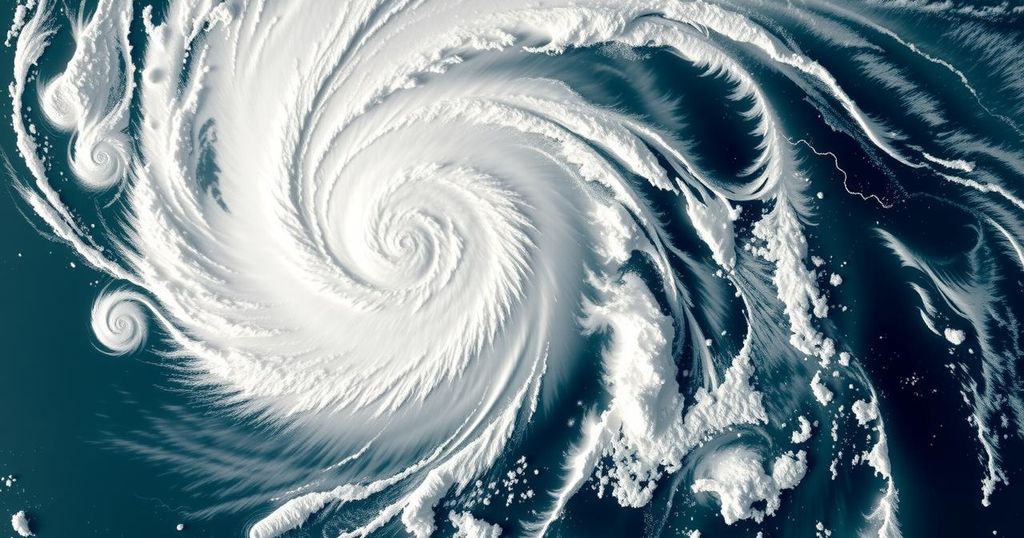Cyclone Chido Devastates Mayotte and Threatens Eastern Africa

Tropical Cyclone Chido has devastated Mayotte, causing significant destruction with winds exceeding 220 kilometers per hour. Rescue efforts are in progress, with considerable concern for nearby regions. As Chido approaches Mozambique, its humanitarian implications amid worsening cyclone conditions due to climate change are becoming increasingly pronounced.
Tropical Cyclone Chido has caused significant destruction in Mayotte, a French territory in the Indian Ocean, as it approaches the eastern coast of Africa. The cyclone, with wind speeds exceeding 220 kilometers per hour, has torn roofs from buildings and left thousands without electricity.
Mayotte Prefect Francois-Xavier Bieuville described the cyclone as “the most violent and destructive” to hit the region since 1934, highlighting the extensive damage and loss faced by residents. In light of this devastation, authorities have lifted the highest alert level to facilitate rescue operations, while cautioning the general population to remain sheltered.
Furthermore, French Interior Minister Bruno Retailleau confirmed the extensive impact of Cyclone Chido, with local emergency services fully engaged in recovery efforts. Thousands are without power, and there are reports of blown-over trees and dislodged structures. Rescuers and firefighters, including several dispatched from France and the nearby territory of Reunion, have commenced their operations in the aftermath of the storm.
Chido continues to affect neighboring Comoros, where authorities have expressed concern over missing fishermen. Additionally, the cyclone is anticipated to strike Mozambique’s northern provinces, with an estimated 2.5 million individuals at risk of being affected. Preparations for possible flooding and evacuations are underway in Malawi and Zimbabwe, as the cyclone season in the region typically lasts from December to March.
Climate change has been identified as a significant factor contributing to the increasing severity of cyclones, which have historically left vulnerable countries facing large-scale humanitarian crises following their occurrence. The aftermath of previous cyclones, such as Idai and Freddy, serves as a stark reminder of the possible implications, including the heightened risk of waterborne diseases, flooding, and landslides.
Cyclone Chido forms part of the broader cyclone season occurring annually in the southeastern Indian Ocean, which typically extends from December to March. The increasing severity of these storms has raised significant concerns about their humanitarian impact, particularly in southern African nations that contribute minimally to climate change yet bear the brunt of its consequences. Past cyclones like Idai in 2019 and Freddy in 2022 showcase the catastrophic outcomes that can ensue, including loss of life and infrastructure, followed by health crises related to water-borne diseases.
In summary, Tropical Cyclone Chido has wreaked havoc in Mayotte and poses an imminent threat to Mozambique and surrounding regions. With extensive damages reported and ongoing rescue efforts, the cyclone underscores the escalating challenges faced by vulnerable communities in southern Africa due to climate change. The situation calls for heightened awareness and preparedness, particularly as humanitarian needs are likely to grow in the aftermath of such catastrophic events.
Original Source: www.voanews.com








